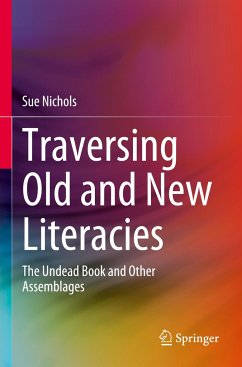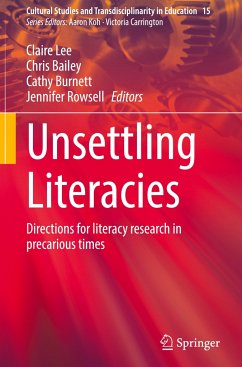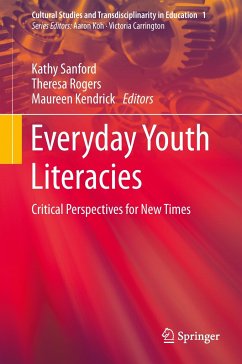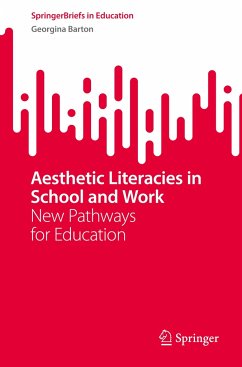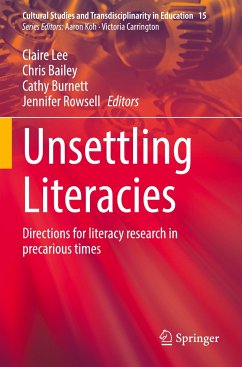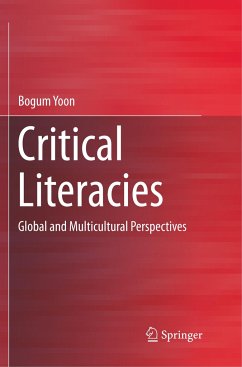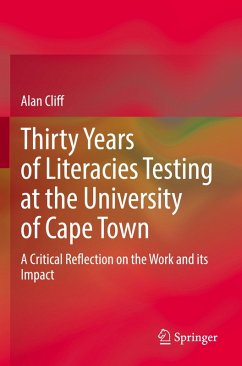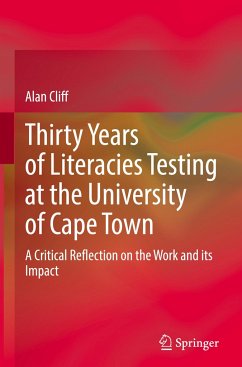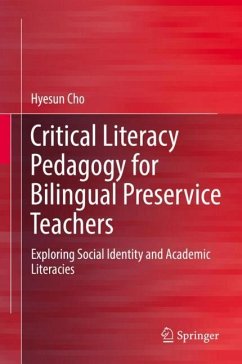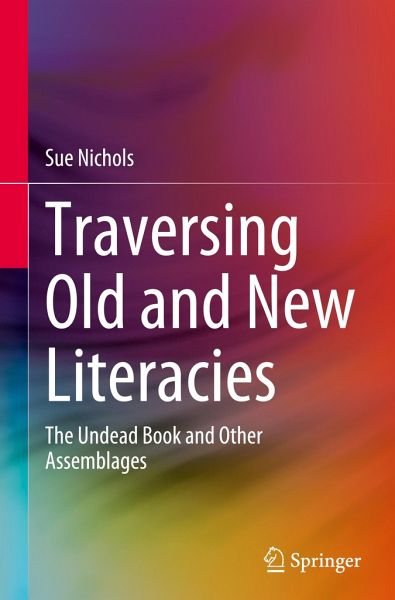
Traversing Old and New Literacies
The Undead Book and Other Assemblages
Versandkostenfrei!
Versandfertig in 6-10 Tagen
106,99 €
inkl. MwSt.
Weitere Ausgaben:

PAYBACK Punkte
53 °P sammeln!
This book re-examines the field of New Literacy Studies and promotes a shift away from binary constructions of literacies as 'old' or 'new' and to encourage critical reflection on the part of readers as to the uses of these constructs. First, the book examines the entanglement of pasts, presents and futures in contemporary literacy practices. Second, it considers representations of literacies as actors, having their own power and consequences. Third, it critically examines the place of 'new' and 'old' literacies in a marketplace in which social, economic and political power advantage is contes...
This book re-examines the field of New Literacy Studies and promotes a shift away from binary constructions of literacies as 'old' or 'new' and to encourage critical reflection on the part of readers as to the uses of these constructs.
First, the book examines the entanglement of pasts, presents and futures in contemporary literacy practices. Second, it considers representations of literacies as actors, having their own power and consequences. Third, it critically examines the place of 'new' and 'old' literacies in a marketplace in which social, economic and political power advantage is contested.
The book demonstrates the use of assemblage theory drawing on semiotics, geo-semiotics and Actor Network Theory for analyzing literacies as assemblages. It provides readers with tools of analysis with which to interrogate claims made for the value of literacy, innovations and traditions alike. It also discusses implications for literacy policy, curriculum, teacher education and research.
First, the book examines the entanglement of pasts, presents and futures in contemporary literacy practices. Second, it considers representations of literacies as actors, having their own power and consequences. Third, it critically examines the place of 'new' and 'old' literacies in a marketplace in which social, economic and political power advantage is contested.
The book demonstrates the use of assemblage theory drawing on semiotics, geo-semiotics and Actor Network Theory for analyzing literacies as assemblages. It provides readers with tools of analysis with which to interrogate claims made for the value of literacy, innovations and traditions alike. It also discusses implications for literacy policy, curriculum, teacher education and research.





